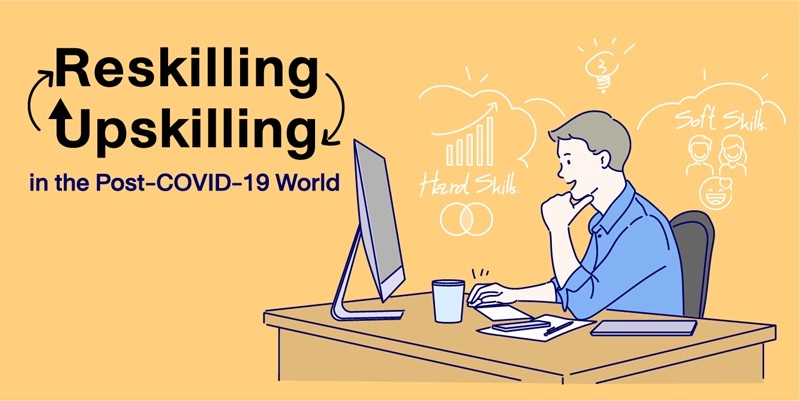Are You A Fresher In The Job Market? Wake Up Otherwise, It Will Be Too Late, As Hirings Are Slowed Down And You Need To Upgrade Yourself To Survive In The Job Market!
Because of the tightening economy and macroeconomic difficulties, the 'talent build' ecosystem is fractured. Companies cannot afford the cost to companies that freshers incur over a period of 6 months to 1.5 years, according to employment market specialists.

Recall those golden days of the IT boom when companies used to do bulk hiring of freshers from colleges. As time passed and we stepped into higher advancements, these fresher hirings were expected to rise exponentially; however, the present scenario depicts the opposite situation.
For example, IT titan Infosys will freeze its campus hiring for freshers for the coming year. Infosys will not be visiting college campuses this year to employ freshers since the second-largest Indian IT services business still has a “significant fresher bench” despite a fall in demand in major countries such as the United States. In a recent post-results news conference, CEO and MD Salil Parekh stated that the firm has inefficiencies in its staff pyramid and has a considerable opportunity to tighten utilisation to 84-85 per cent. CFO Nilanjan Roy, pointing to a big fresher bench being trained on Gen AI, stated that the business is not looking to make new university recruits at this time.
And this is not only with Infosys. According to industry projections, placement of students from engineering universities is anticipated to fall by 35-40% this year compared to last. On a broader scale, IT services firms such as TCS, Infosys, HCL Technologies, and Wipro recruited 66% fewer employees in FY23 than the previous year. Every year, the IT services business takes 20-25 per cent of India’s 1.5 million engineering graduates. However, corporations expect to reduce fresher hiring due to a sluggish deal pipeline and persisting recessionary worries in the United States.

According to TeamLease statistics, the Indian IT sector would recruit 40% fewer freshers than in FY23, when it hired 2,50,000 engineers. IT majors typically begin their college placement processes in August-September, but they have been missing from educational institutions this placement season.
With the world’s largest provider of technology services, Accenture, giving a cautious business outlook, Indian pure-play outsourcing businesses are taking their time on campus recruits. Wipro, Capgemini, HCLTech, and Tech Mahindra have stated that they are taking a phased approach to hiring. Because of the tightening economy and macroeconomic difficulties, the ‘talent build’ ecosystem is fractured. Companies cannot afford the cost to companies that freshers incur over a period of 6 months to 1.5 years, according to employment market specialists.
What can be the possible reasons for the slow hiring of freshers in IT behemoths?
Shift in the employment domain.
With the talent market reverting to pre-pandemic levels, with FY23 net addition numbers closer to FY21, tier 2 and 3 engineering institutions are looking to product-based corporations to put their students. However, unlike IT services companies, such businesses do not recruit significantly. For example, over 60% of students who graduate from these universities are recruited by service-based enterprises. “The IT sector has been going through a period of transition,” said Sidharth Agarwal, director of Spectrum Talent Management, “and they are witnessisng a shift in the direction of a more contract-based employment and upskilling of existing employees.”
As a result, the recruiting of freshers has slowed.” He noted that the reduction in placement at IT services businesses has been somewhat offset by recruiting from other industries, such as banking and FMCG, but the figures are relatively low because these industries do not require a high level of people.
Focussing on niche domain.
According to Savitha Rani M, training and placement officer at Ramaiah Institute of Technology in Bengaluru, entry-level occupations are becoming more automated, and students must enhance their abilities to get employed in niche areas with opportunities. According to human resource placement experts, organisations have identified upskilling as the elixir to market competitiveness and favour individuals knowledgeable about technologies such as blockchain, cybersecurity, AI, and ML. The employment market has grown highly dynamic due to the quick speed of technology innovation and increasing globalisation while being sensitive to global market turbulence.
Tech Mahindra stated that it is developing talent in niche digital skills like artificial intelligence, the Internet of Things, and customer experience. It has begun the campus hiring process and is reaching out to prominent IITs and other engineering institutions to do so.
Drop in attrition is another cause of the event.
Fewer alternatives have resulted in a drop in attrition, reducing the need to acquire a greater number of fresh hires. “The environment today is not the same as it was a year ago.” In view of lowering attrition rates and persistent economic uncertainty, the scramble to hire ahead of demand has given way to a more cautious approach,” stated Wipro.
HCLTech will make campus visits as planned. Demand is likely to remain consistent but slightly lower than in recent years as attrition has settled off, and efficiency will be driven by productivity and improved utilisation.
What can the new IT graduates do in such a condition of fear?
Property prices will double in the upcoming ten years. With sluggish or poor pay, how are these young people going to afford a decent home for their new nuclear families? Where can I find work? I simply cannot imagine… Yes, that is a possibility in the minds of recent engineering graduates and their parents. However, if thoroughly examined and implemented, this scenario may be resolved with a correct plan of action.
Let’s start dealing with a harsh bite of reality. Engineering colleges in India have grown like bushes in the last decade, and so has the number of engineering graduates. But these fresh pass-outs are engineers just in their degrees; i.e. they do not have the competency to deal with real-life technical issues. They can solve an on-paper problem on ‘Kirchhoff’s law’, but when placed on transformer maintenance duty, they will eventually fail. So having just a degree and expecting to land in a tech corporation is a far-away dream now. These young minds need to train their mind on solving real-life problems.

Along with that, with the onset of AI, most of the basic manual positions have been automated. So youngsters need to focus their efforts and get genuine certifications on subjects like Artificial Intelligence, Machine Learning, Cybersecurity, Blockchain, Learning ChatGPT and more.
Insiders in the sector are likewise concerned about the impact of AI on jobs. In an open letter to the government, Zoho founder Sridhar Vembu stated that AI may be destructive to jobs in India, particularly entry-level positions that may be readily outsourced to AI technologies. A concerning tendency, considering that the country’s median age is 29, implies that the bulk of the population is in the early stages of their professional career. However, other experts feel that all is not lost because freshers would find it simpler to transition to tasks necessary in an AI-integrated workforce.
Eventually, fresh graduates need to have skills in how to perform jobs with AI. Data annotation, labelling, and prompt generation will be the new low-skilled tasks necessary for AI models to function well. And individuals can always learn new skills and advance their careers.
Conclusion.
The approaching recession has already had an impact on job markets. Over 3,000,000 jobs have been lost internationally by major businesses such as Google, Amazon, Meta, and others since the beginning of 2022. Companies are preparing for the recession not only by laying off workers but also by lowering campus hiring, postponing onboarding, and slashing training and skilling costs. Furthermore, a new dread has emerged: AI. The main concern is that AI will replace low-skilled workers, and it appears that the combination of these variables will have the greatest impact on freshers and other entry-level employees.
So to save yourself from the wave of slowed hiring, one needs to upskill their brains to creative and analytical thinking to have a great career ahead.





